中华人民共和国企业国有资产法(中英文对照版)
《中华人民共和国企业国有资产法》已由中华人民共和国第十一届全国人民代表大会常务委员会第五次会议于2008年10月28日通过,现予公布,自2009年5月1日起施行。
法律文本
中华人民共和国企业国有资产法
Law of the People’s Republic of China on State-Owned Assets of Enterprises
中华人民共和国主席令第五号
Order of the President of the People's Republic of China No.5
《中华人民共和国企业国有资产法》已由中华人民共和国第十一届全国人民代表大会常务委员会第五次会议于2008年10月28日通过,现予公布,自2009年5月1日起施行。
The Law of the People's Republic of China on State-owned Assets in Enterprises, adopted at the 5th Meeting of the Standing Committee of the 11th National People's Congress of the People's Republic of China on 28 October 2008, is hereby promulgated and shall go into effect as of 1 May 2009.
中华人民共和国主席 胡锦涛
President Hu Jintao
2008年10月28日
October 28, 2008
(2008年10月28日第十一届全国人民代表大会常务委员会第五次会议通过)
(Adopted at the Fifth Meeting of the Standing Committee of the 11th National People's Congress on 28 October 2008)
第一章 总 则
Chapter 1 General Provisions
第一条 为了维护国家基本经济制度,巩固和发展国有经济,加强对国有资产的保护,发挥国有经济在国民经济中的主导作用,促进社会主义市场经济发展,制定本法。
Article 1 This Law is formulated in order to maintain the basic economic system of the state, to consolidate and develop the state-owned economy, to strengthen the protection of state-owned assets, to enable the state-owned economy to play a leading role in the national economy, and to promote the development of the socialist market economy.
第二条 本法所称企业国有资产(以下称国有资产),是指国家对企业各种形式的出资所形成的权益。
Article 2 The term "state-owned assets in enterprises" (hereinafter referred to as state-owned assets) as used in this Law refers to rights and interests arising from the State's capital contributions of all types to enterprises.
第三条 国有资产属于国家所有即全民所有。国务院代表国家行使国有资产所有权。
Article 3 State-owned assets belong to the State, i.e., are owned by the whole people. The State Council shall exercise the ownership of state-owned assets on behalf of the State.
第四条 国务院和地方人民政府依照法律、行政法规的规定,分别代表国家对国家出资企业履行出资人职责,享有出资人权益。
Article 4 The State Council and local people's governments shall, in accordance with laws and administrative regulations, perform the responsibilities of an investor and exercise investors' rights to state-invested enterprises respectively on behalf of the State.
国务院确定的关系国民经济命脉和国家安全的大型国家出资企业,重要基础设施和重要自然资源等领域的国家出资企业,由国务院代表国家履行出资人职责。其他的国家出资企业,由地方人民政府代表国家履行出资人职责。
With regard to large state-invested enterprises which are recognized by the State Council as enterprises that affect the lifeline of the national economy and national security, as well as state-invested enterprises in the fields of important infrastructure and vital natural resources, investors' duties shall be performed by the State Council on behalf of the State. For other state-invested enterprises, the duties of an investor shall be performed by local governments on behalf of the state.
第五条 本法所称国家出资企业,是指国家出资的国有独资企业、国有独资公司,以及国有资本控股公司、国有资本参股公司。
Article 5 The term "state-invested enterprises" as used in this Law refers to wholly state-owned enterprises or companies to which the State contributes capital, as well as companies controlled or participated in by state-owned capital.
第六条 国务院和地方人民政府应当按照政企分开、社会公共管理职能与国有资产出资人职能分开、不干预企业依法自主经营的原则,依法履行出资人职责。
Article 6 The State Council and local people's governments shall, in accordance with the principle of separating government functions from enterprise management, separating the social and public administrative functions from the functions of state-owned asset investors, and refraining from intervening in the lawful and independent operation of enterprises, perform investors' duties in accordance with the law.
第七条 国家采取措施,推动国有资本向关系国民经济命脉和国家安全的重要行业和关键领域集中,优化国有经济布局和结构,推进国有企业的改革和发展,提高国有经济的整体素质,增强国有经济的控制力、影响力。
Article 7 The state shall take measures to promote the concentration of state-owned capital in important industries and key areas concerning the lifeline of the national economy and national security, optimize the layout and structure of the state-owned economy, promote the reform and development of state-owned enterprises, improve the overall quality of the state-owned economy, and strengthen the control and influence of the state-owned economy.
第八条 国家建立健全与社会主义市场经济发展要求相适应的国有资产管理与监督体制,建立健全国有资产保值增值考核和责任追究制度,落实国有资产保值增值责任。
Article 8 The State is to establish and improve the state-owned assets administration and supervision system commensurate with the development of the socialist market economy, establish and improve the evaluation and accountability system for maintaining and increasing the value of state-owned assets, and designate the responsibilities for maintaining and increasing the value of state-owned assets to specific persons.
第九条 国家建立健全国有资产基础管理制度。具体办法按照国务院的规定制定。
Article 9 The State establishes a sound basic management system for state-owned assets. Specific measures shall be formulated in accordance with the provisions of the State Council.
第十条 国有资产受法律保护,任何单位和个人不得侵害。
Article 10 State-owned assets shall be protected by law, and no entity or individual may infringe such assets.
第二章 履行出资人职责的机构
Chapter 2 Organs that Perform the Duties of an Investor
第十一条 国务院国有资产监督管理机构和地方人民政府按照国务院的规定设立的国有资产监督管理机构,根据本级人民政府的授权,代表本级人民政府对国家出资企业履行出资人职责。
Article 11 The State-owned Assets Supervision and Administration Commission under the State Council and state-owned assets supervision and administration organs established by local governments in accordance with the requirements of the State Council shall, subject to the authorization of the government at the same level, perform the duties of an investor for state-invested enterprises on behalf of the governments at the same level.
国务院和地方人民政府根据需要,可以授权其他部门、机构代表本级人民政府对国家出资企业履行出资人职责。
The State Council and local people's governments may, where necessary, authorize other departments and organs to perform investors' duties for state-invested enterprises on behalf of the government at the same level.
代表本级人民政府履行出资人职责的机构、部门,以下统称履行出资人职责的机构。
Organs and departments that perform investors' duties on behalf of the government at the same level are hereinafter referred to as organs that perform the duties of an investor.
第十二条 履行出资人职责的机构代表本级人民政府对国家出资企业依法享有资产收益、参与重大决策和选择管理者等出资人权利。
Article 12 Organs that perform the duties of an investor enjoy investors' rights to state-invested enterprises, such as the right to profit from their assets, the right to participate in the making of major decisions and the selection of managers, on behalf of the government at the same level.
履行出资人职责的机构依照法律、行政法规的规定,制定或者参与制定国家出资企业的章程。
Organs that perform the duties of an investor shall, in accordance with laws and administrative regulations, formulate or participate in formulating the articles of association of state-invested enterprises.
履行出资人职责的机构对法律、行政法规和本级人民政府规定须经本级人民政府批准的履行出资人职责的重大事项,应当报请本级人民政府批准。
Organs that perform the duties of an investor shall seek approval from the government at the same level on major matters relating to investors' duties that require the approval of the government at the same level in accordance with laws, administrative regulations and the regulations of the government at the same level.
第十三条 履行出资人职责的机构委派的股东代表参加国有资本控股公司、国有资本参股公司召开的股东会会议、股东大会会议,应当按照委派机构的指示提出提案、发表意见、行使表决权,并将其履行职责的情况和结果及时报告委派机构。
Article 13 When participating in any shareholders' meeting or general meeting of shareholders held by a company controlled or participated in by state-owned capital, shareholders appointed by organs to perform the duties of an investor shall, in accordance with the instructions of the appointing organ, make proposals, express opinions, exercise voting rights and report to the appointing organ in a timely manner on the performance of their duties and the results thereof.
第十四条 履行出资人职责的机构应当依照法律、行政法规以及企业章程履行出资人职责,保障出资人权益,防止国有资产损失。
Article 14 Organs that perform the duties of an investor shall, in accordance with laws, administrative regulations and enterprises' articles of association, perform investors' duties, safeguard investors' rights and interests and prevent the loss of state-owned assets.
履行出资人职责的机构应当维护企业作为市场主体依法享有的权利,除依法履行出资人职责外,不得干预企业经营活动。
Organs that perform the duties of an investor shall protect the lawful rights of enterprises as market subjects and shall not intervene in enterprises' operations other than when performing investors' duties in accordance with the law.
第十五条 履行出资人职责的机构对本级人民政府负责,向本级人民政府报告履行出资人职责的情况,接受本级人民政府的监督和考核,对国有资产的保值增值负责。
Article 15 Organs that perform the duties of an investor shall be responsible to the government at the same level, report on their performance of the duties of an investor to the government at the same level, accept the supervision and evaluation of the government at the same level, and assume responsibility for maintaining and increasing the value of state-owned assets.
履行出资人职责的机构应当按照国家有关规定,定期向本级人民政府报告有关国有资产总量、结构、变动、收益等汇总分析的情况。
Organs that perform the duties of an investor shall, in accordance with the relevant regulations of the State, submit a summary analysis on the total amount and structure of state-owned assets, along with any changes therein, profits derived therefrom and other information, to the government at the same level on a regular basis.
第三章 国家出资企业
Chapter 3 State-invested Enterprises
第十六条 国家出资企业对其动产、不动产和其他财产依照法律、行政法规以及企业章程享有占有、使用、收益和处分的权利。
Article 16 State-invested enterprises have the right to possess, utilize, profit from or dispose of their movable property, immovable property or other property in accordance with laws, administrative regulations and their Articles of association.
国家出资企业依法享有的经营自主权和其他合法权益受法律保护。
Independent operating rights and other legitimate rights and interests that state-invested enterprises enjoy in accordance with the law are protected by law.
第十七条 国家出资企业从事经营活动,应当遵守法律、行政法规,加强经营管理,提高经济效益,接受人民政府及其有关部门、机构依法实施的管理和监督,接受社会公众的监督,承担社会责任,对出资人负责。
Article 17 State-invested enterprises that engage in operating activities shall abide by laws and administrative regulations, strengthen their operating management practices, enhance their profitability, accept the administration and supervision of the government and relevant departments and organs, as well as the supervision of the general public, and shall assume responsibilities to both society and investors.
国家出资企业应当依法建立和完善法人治理结构,建立健全内部监督管理和风险控制制度。
State-invested enterprises shall establish and improve corporate governance structure in accordance with the law as well as internal supervision and risk control systems.
第十八条 国家出资企业应当依照法律、行政法规和国务院财政部门的规定,建立健全财务、会计制度,设置会计账簿,进行会计核算,依照法律、行政法规以及企业章程的规定向出资人提供真实、完整的财务、会计信息。
Article 18 State-invested enterprises shall, in accordance with laws, administrative regulations and the requirements of the finance department under the State Council, establish and improve their financial and accounting systems, establish accounting books, and provide investors with authentic and complete financial and accounting information in accordance with laws, administrative regulations and their Articles of association.
国家出资企业应当依照法律、行政法规以及企业章程的规定,向出资人分配利润。
State-invested enterprises shall distribute profits to investors in accordance with laws, administrative regulations and their Articles of association.
第十九条 国有独资公司、国有资本控股公司和国有资本参股公司依照《中华人民共和国公司法》的规定设立监事会。国有独资企业由履行出资人职责的机构按照国务院的规定委派监事组成监事会。
Article 19 Wholly state-owned companies, state-controlled companies and partly state-owned companies shall establish a board of supervisors in accordance with the PRC, Company Law. The board of supervisors of any wholly state-owned enterprises shall be formed by supervisors designated by organs that perform the duties of an investor in accordance with the relevant regulations of the State Council.
国家出资企业的监事会依照法律、行政法规以及企业章程的规定,对董事、高级管理人员执行职务的行为进行监督,对企业财务进行监督检查。
The board of supervisors of all state-invested enterprises shall, in accordance with laws, administrative regulations and their articles of association, supervise the activities of directors and senior management in performing their duties, and supervise and inspect the financial status of the enterprise.
第二十条 国家出资企业依照法律规定,通过职工代表大会或者其他形式,实行民主管理。
Article 20 State-invested enterprises shall implement democratic management practices through an employee congress or in another manner in accordance with the law.
第二十一条 国家出资企业对其所出资企业依法享有资产收益、参与重大决策和选择管理者等出资人权利。
Article 21 State-invested enterprises lawfully enjoy investors' rights to the enterprises to which they make capital contributions, including the right to profit from assets, the right to participate in the making of major decisions and the selection of managers.
国家出资企业对其所出资企业,应当依照法律、行政法规的规定,通过制定或者参与制定所出资企业的章程,建立权责明确、有效制衡的企业内部监督管理和风险控制制度,维护其出资人权益。
State-invested enterprises shall, in accordance with laws and administrative regulations and by way of formulating or participating in formulating their Articles of association, establish internal supervision and risk control systems with defined powers and duties, in addition to effective checking mechanisms, for enterprises to which they make capital contributions, and shall protect the rights and interests of investors.
第四章 国家出资企业管理者的选择与考核
Chapter 4 Selection and Evaluation of Managers of State-invested Enterprises
第二十二条 履行出资人职责的机构依照法律、行政法规以及企业章程的规定,任免或者建议任免国家出资企业的下列人员:
Article 22 Organs that perform the duties of an investor shall, in accordance with laws, administrative regulations and enterprise articles of association, appoint, dismiss and propose the appointment or dismissal of the following state-invested enterprise personnel:
(一)任免国有独资企业的经理、副经理、财务负责人和其他高级管理人员;
1. The appointment or dismissal of managers, assistant managers, personnel responsible for financial affairs and other senior managers of wholly state-owned enterprises;
(二)任免国有独资公司的董事长、副董事长、董事、监事会主席和监事;
2. The appointment or dismissal of the chairman of the board of directors, vice chairman of the board of directors, directors, chairman of the board of supervisors or supervisors of wholly state-owned companies; and
(三)向国有资本控股公司、国有资本参股公司的股东会、股东大会提出董事、监事人选。
(III) proposing candidates for directors and supervisors of companies controlled or participated in by state-owned capital to the shareholders' meeting or general meeting of shareholders.
国家出资企业中应当由职工代表出任的董事、监事,依照有关法律、行政法规的规定由职工民主选举产生。
Directors and supervisors in state-invested enterprises who are employee representatives shall be elected by employees through democratic procedures in accordance with relevant laws and administrative regulations.
第二十三条 履行出资人职责的机构任命或者建议任命的董事、监事、高级管理人员,应当具备下列条件:
Article 23 Directors, supervisors and senior managers which organs that perform the duties of an investor appoint or propose to appoint shall meet the following requirements:
(一)有良好的品行;
1. Having good conducts;
(二)有符合职位要求的专业知识和工作能力;
2. Having professional knowledge and ability commensurate with the requirements of the post;
(三)有能够正常履行职责的身体条件;
(III) Being physically capable of performing normal duties;
(四)法律、行政法规规定的其他条件。
(IV) Other conditions prescribed by laws and administrative regulations.
董事、监事、高级管理人员在任职期间出现不符合前款规定情形或者出现《中华人民共和国公司法》规定的不得担任公司董事、监事、高级管理人员情形的,履行出资人职责的机构应当依法予以免职或者提出免职建议。
Where any director, supervisor or senior manager no longer meets the requirements set out in the preceding paragraph or where any of the circumstances specified in the Company Law of the People's Republic of China occurs such that he or she may no longer serve as a director, supervisor or senior manager, the organ that performs the duties of an investor shall dismiss or propose that he or she be dismissed in accordance with the law.
第二十四条 履行出资人职责的机构对拟任命或者建议任命的董事、监事、高级管理人员的人选,应当按照规定的条件和程序进行考察。考察合格的,按照规定的权限和程序任命或者建议任命。
Article 24 Organs that perform the duties of an investor shall evaluate directors, supervisors and senior manager candidates to be appointed or proposed for appointment in accordance with prescribed conditions and procedures. Appointments or nominations shall be made in accordance with the prescribed limits of authority and procedures if satisfactory.
第二十五条 未经履行出资人职责的机构同意,国有独资企业、国有独资公司的董事、高级管理人员不得在其他企业兼职。未经股东会、股东大会同意,国有资本控股公司、国有资本参股公司的董事、高级管理人员不得在经营同类业务的其他企业兼职。
Article 25 No director or senior manager of a wholly state-owned enterprise or company shall provide any service concurrently in another enterprise without obtaining the consent of the organ that performs the duties of an investor. No director or senior manager of a company controlled or participated in by state-owned capital shall hold any post concurrently in another enterprise that carries on business of the same type without obtaining the consent of the shareholders' meeting or the general meeting of shareholders.
未经履行出资人职责的机构同意,国有独资公司的董事长不得兼任经理。未经股东会、股东大会同意,国有资本控股公司的董事长不得兼任经理。
No chairman of the board of directors of a wholly state-owned company shall serve as the manager of that company concurrently without obtaining the consent of the organ that performs the duties of an investor. Without the consent of the Shareholders’ meeting and the shareholders’ general meeting, the chairman of the board of directors of a state-owned capital holding company shall not concurrently serve as the manager.
董事、高级管理人员不得兼任监事。
Directors and senior management personnel shall not be appointed as supervisor concurrently.
第二十六条 国家出资企业的董事、监事、高级管理人员,应当遵守法律、行政法规以及企业章程,对企业负有忠实义务和勤勉义务,不得利用职权收受贿赂或者取得其他非法收入和不当利益,不得侵占、挪用企业资产,不得超越职权或者违反程序决定企业重大事项,不得有其他侵害国有资产出资人权益的行为。
Article 26 Directors, supervisors and senior managers of state-invested enterprises shall abide by laws, administrative regulations and articles of association and perform their duties of fidelity and due diligence to such enterprises, and shall not accept any bribe or obtain any other illegal income or benefit, embezzle or misappropriate enterprise assets, make decisions on major matters without authorization or in violation of procedures, or infringe the rights and interests of other investors in state-owned assets.
第二十七条 国家建立国家出资企业管理者经营业绩考核制度。履行出资人职责的机构应当对其任命的企业管理者进行年度和任期考核,并依据考核结果决定对企业管理者的奖惩。
Article 27 The State shall establish an evaluation system for the operating performance of managers of state-invested enterprises. Organs that perform the duties of an investor shall evaluate the performance of the managers they appoint both annually and over the whole term of their appointments, and shall determine their awards or penalties according to the evaluation results.
履行出资人职责的机构应当按照国家有关规定,确定其任命的国家出资企业管理者的薪酬标准。
Organs that perform the duties of an investor shall ascertain the remuneration levels for state-invested enterprise managers they appoint in accordance with the relevant regulations of the State.
第二十八条 国有独资企业、国有独资公司和国有资本控股公司的主要负责人,应当接受依法进行的任期经济责任审计。
Article 28 The main personnel in charge of wholly state-owned enterprises, wholly state-owned companies and state-controlled companies shall be subject to economic responsibility audits in respect of their respective terms of office.
第二十九条 本法第二十二条第一款第一项、第二项规定的企业管理者,国务院和地方人民政府规定由本级人民政府任免的,依照其规定。履行出资人职责的机构依照本章规定对上述企业管理者进行考核、奖惩并确定其薪酬标准。
Article 29 Where the State Council and local government require that the managers specified in Items 1 and 2 of Paragraph 1 of Article 22 of this Law be appointed and dismissed by the government at the same level, such requirements shall apply. The authorities that perform the duties of the investor shall evaluate, reward or punish the aforesaid enterprise managers and determine their remuneration standards in accordance with this Chapter.
第五章 关系国有资产出资人权益的重大事项
Chapter 5 Major Matters Concerning the Rights and Interests of Investors in State-owned Assets
第一节 一般规定
Section 1 General Provisions
第三十条 国家出资企业合并、分立、改制、上市,增加或者减少注册资本,发行债券,进行重大投资,为他人提供大额担保,转让重大财产,进行大额捐赠,分配利润,以及解散、申请破产等重大事项,应当遵守法律、行政法规以及企业章程的规定,不得损害出资人和债权人的权益。
Article 30 Major events involving state-invested enterprises, including but not limited to mergers, divisions, restructurings, listings, increases or reductions in registered capital, issuance of bonds, major investments, providing major guarantees to external parties, transfers of major assets, large-scale donations, profit distributions, dissolutions and applications for bankruptcy shall be carried out in accordance with laws, administrative regulations and articles of association, and shall not damage the rights and interests of investors or creditors.
第三十一条 国有独资企业、国有独资公司合并、分立,增加或者减少注册资本,发行债券,分配利润,以及解散、申请破产,由履行出资人职责的机构决定。
Article 31 Decisions on mergers, divisions, increases or reductions in registered capital, issuance of bonds, profit distributions, dissolutions, applications for bankruptcy and other major events involving wholly state-owned enterprises and wholly state-owned companies shall be made by organs that perform the duties of an investor.
第三十二条 国有独资企业、国有独资公司有本法第三十条所列事项的,除依照本法第三十一条和有关法律、行政法规以及企业章程的规定,由履行出资人职责的机构决定的以外,国有独资企业由企业负责人集体讨论决定,国有独资公司由董事会决定。
Article 32 Where any of the events listed in Article 30 occurs in relation to a wholly state-owned enterprise or company, the relevant decisions shall be made by the persons in charge of the wholly state-owned enterprise, as applicable, or through collective discussions or by the board of directors of a wholly state-owned company, as applicable, unless decisions on the event in question are to be made by the organ that performs the duties of an investor in accordance with Article 31 and relevant laws, administrative regulations and the enterprise's articles of association.
第三十三条 国有资本控股公司、国有资本参股公司有本法第三十条所列事项的,依照法律、行政法规以及公司章程的规定,由公司股东会、股东大会或者董事会决定。由股东会、股东大会决定的,履行出资人职责的机构委派的股东代表应当依照本法第十三条的规定行使权利。
Article 33 Where any of the events listed in Article 30 occurs in relation to a company controlled or participated in by state-owned capital, the relevant decisions shall be made by the board of shareholders, general meeting or board of directors in accordance with laws, administrative regulations and the company's articles of association. Where such decisions are made by the shareholders' meeting or the general meeting of shareholders, shareholder representatives designated by the organ that performs the duties of an investor shall exercise their rights in accordance with Article 13 of this Law.
第三十四条 重要的国有独资企业、国有独资公司、国有资本控股公司的合并、分立、解散、申请破产以及法律、行政法规和本级人民政府规定应当由履行出资人职责的机构报经本级人民政府批准的重大事项,履行出资人职责的机构在作出决定或者向其委派参加国有资本控股公司股东会会议、股东大会会议的股东代表作出指示前,应当报请本级人民政府批准。
Article 34 Any merger, division, dissolution or application for bankruptcy involving a significant wholly state-owned enterprise, wholly state-owned company or company controlled by state-owned capital and any other major event required to be reported by organs that perform the duties of an investor to the government at the same level for approval in accordance with laws, administrative regulations and regulations of the government at the same level shall be reported by organs that perform the duties of an investor to the government at the same level for approval before any decision is made or any instructions are issued to their designated shareholder representatives to participate in the relevant shareholders meeting or general meeting of shareholders of the company controlled by state-owned capital in question.
本法所称的重要的国有独资企业、国有独资公司和国有资本控股公司,按照国务院的规定确定。
The aforesaid important wholly state-owned enterprises, wholly state-owned companies and state-controlled companies shall be determined in accordance with the relevant regulations of the State Council.
第三十五条 国家出资企业发行债券、投资等事项,有关法律、行政法规规定应当报经人民政府或者人民政府有关部门、机构批准、核准或者备案的,依照其规定。
Article 35 When state-invested enterprises are involved in events such as issuing bonds or making investments and the relevant laws and administrative regulations require that such an event be submitted to the government or relevant government departments for approval, verification or filing, such rules shall apply.
第三十六条 国家出资企业投资应当符合国家产业政策,并按照国家规定进行可行性研究;与他人交易应当公平、有偿,取得合理对价。
Article 36 State-invested enterprises shall make investments in compliance with the industrial policy of the State and carry out feasibility studies in accordance with the relevant regulations of the State. Transactions with other entities shall be executed on a fair, non-gratuitous and reasonable basis.
第三十七条 国家出资企业的合并、分立、改制、解散、申请破产等重大事项,应当听取企业工会的意见,并通过职工代表大会或者其他形式听取职工的意见和建议。
Article 37 For any major event such as a merger, division, restructuring, dissolution or application for bankruptcy, state-invested enterprises shall consult with the trade union of the enterprise and listen to the opinions and advice of employees through the employee representative congress or in another format.
第三十八条 国有独资企业、国有独资公司、国有资本控股公司对其所出资企业的重大事项参照本章规定履行出资人职责。具体办法由国务院规定。
Article 38 Wholly state-owned enterprises, wholly state-owned companies and state-controlled companies shall perform investors' duties for enterprises to which they make capital contributions by reference to this Chapter. The specific measures shall be formulated by the State Council.
第二节 企业改制
Section 2 Enterprise Restructuring
第三十九条 本法所称企业改制是指:
Article 39 The term "enterprise restructuring" as used in this Law refers to:
(一)国有独资企业改为国有独资公司;
1. The restructuring of a wholly state-owned enterprise into a wholly state-owned company;
(二)国有独资企业、国有独资公司改为国有资本控股公司或者非国有资本控股公司;
(II) The restructuring of a wholly state-owned enterprise or a wholly state-owned company into a state-controlled company or a non-state-controlled company; and
(三)国有资本控股公司改为非国有资本控股公司。
(III) The restructuring of a company controlled by state-owned capital into a company not controlled by state-owned capital.
第四十条 企业改制应当依照法定程序,由履行出资人职责的机构决定或者由公司股东会、股东大会决定。
Article 40 Enterprise restructuring shall be carried out in compliance with statutory procedures and decisions thereon shall be made by organs that perform the duties of an investor or by the shareholders' meeting or general meeting of shareholders.
重要的国有独资企业、国有独资公司、国有资本控股公司的改制,履行出资人职责的机构在作出决定或者向其委派参加国有资本控股公司股东会会议、股东大会会议的股东代表作出指示前,应当将改制方案报请本级人民政府批准。
In the restructuring of important wholly state-owned enterprises, wholly state-owned companies and state-controlled companies, organs that perform the duties of an investor shall submit the restructuring plan to the government at the same level for approval prior to making any decision or issuing instructions to their designated shareholder representatives to participate in the relevant shareholders' meeting or general meeting of shareholders of the state-controlled company.
第四十一条 企业改制应当制定改制方案,载明改制后的企业组织形式、企业资产和债权债务处理方案、股权变动方案、改制的操作程序、资产评估和财务审计等中介机构的选聘等事项。
Article 41 In enterprise restructuring, a restructuring plan shall be formulated which specifies the organizational form of the enterprise after restructuring, the proposal for dealing with the assets and claims and debts of the enterprise, the equity adjustment plan, the restructuring process, the selection and engagement of asset assessment and financial auditing agencies, and other particulars.
企业改制涉及重新安置企业职工的,还应当制定职工安置方案,并经职工代表大会或者职工大会审议通过。
Where an enterprise restructuring involves a reallocation of employees, an employee reallocation plan shall be formulated and shall be adopted by the employee congress or the general meeting of employees.
第四十二条 企业改制应当按照规定进行清产核资、财务审计、资产评估,准确界定和核实资产,客观、公正地确定资产的价值。
Article 42 In an enterprise restructuring, capital settlements, financial audits and asset assessments shall be carried out in accordance with relevant regulations to accurately define and verify assets and ascertain the values of such assets in an objective and fair manner.
企业改制涉及以企业的实物、知识产权、土地使用权等非货币财产折算为国有资本出资或者股份的,应当按照规定对折价财产进行评估,以评估确认价格作为确定国有资本出资额或者股份数额的依据。不得将财产低价折股或者有其他损害出资人权益的行为。
Where materials, intellectual property rights, land use rights or other non-monetary assets need to be converted into state-owned capital contributions or shares in the course of an enterprise restructuring, the property to be converted shall be evaluated in accordance with relevant regulations and the amount of state-owned capital contributions or shares shall be determined on the basis of the evaluated price. Converting property into shares at an unreasonable price and other acts infringing upon the rights and interests of the contributor are prohibited.
第三节 与关联方的交易
Section 3 Transactions with Affiliates
第四十三条 国家出资企业的关联方不得利用与国家出资企业之间的交易,谋取不当利益,损害国家出资企业利益。
Article 43 No party associated with a state-invested enterprise shall acquire any illegal interest or damage the interests of the state-invested enterprise by taking advantage of transactions therewith.
本法所称关联方,是指本企业的董事、监事、高级管理人员及其近亲属,以及这些人员所有或者实际控制的企业。
The term "affiliated parties" as used in this Law refers to directors, supervisors and senior managers of enterprises, their close relatives, and enterprises owned or effectively controlled by such persons.
第四十四条 国有独资企业、国有独资公司、国有资本控股公司不得无偿向关联方提供资金、商品、服务或者其他资产,不得以不公平的价格与关联方进行交易。
Article 44 No wholly state-owned enterprise, wholly state-owned company or company controlled by state-owned capital shall provide any associated party with funds, goods, services or other assets for free, nor conduct any transaction with an associated party at an unfair price.
第四十五条 未经履行出资人职责的机构同意,国有独资企业、国有独资公司不得有下列行为:
Article 45 No wholly state-owned enterprise or company may engage in any of the following activities without obtaining the consent of the organ that performs the duties of an investor:
(一)与关联方订立财产转让、借款的协议;
1. Enter into property transfer or lending agreements with related parties;
(二)为关联方提供担保;
(II) provision of guarantee to affiliated parties; and
(三)与关联方共同出资设立企业,或者向董事、监事、高级管理人员或者其近亲属所有或者实际控制的企业投资。
(III) Invest in the establishment of an enterprise in conjunction with an associated party or make an investment in any enterprise owned or effectively controlled by any director, supervisor or senior manager of an associated party or any of their close relatives.
第四十六条 国有资本控股公司、国有资本参股公司与关联方的交易,依照《中华人民共和国公司法》和有关行政法规以及公司章程的规定,由公司股东会、股东大会或者董事会决定。由公司股东会、股东大会决定的,履行出资人职责的机构委派的股东代表,应当依照本法第十三条的规定行使权利。
Article 46 Any transaction between a state-controlled company or partly state-owned company and its associated parties shall be decided by the shareholders' meeting, the general meeting of shareholders or the board of directors in accordance with the Company Law of the People's Republic of China and other administrative regulations, in addition to the company's articles of association. Where such decisions are made by the shareholders meeting or the general meeting of shareholders, shareholder representatives designated by the organ that performs the duties of an investor shall exercise their rights in accordance with Article 13 of this Law.
公司董事会对公司与关联方的交易作出决议时,该交易涉及的董事不得行使表决权,也不得代理其他董事行使表决权。
When the board of directors of the Company makes a resolution on a transaction between the Company and its Affiliates, a director involved in such transaction shall not exercise his or her voting right or vote on behalf of any other director.
第四节 资产评估
Section 4 Assets Appraisal
第四十七条 国有独资企业、国有独资公司和国有资本控股公司合并、分立、改制,转让重大财产,以非货币财产对外投资,清算或者有法律、行政法规以及企业章程规定应当进行资产评估的其他情形的,应当按照规定对有关资产进行评估。
Article 47 Where a wholly state-owned enterprise, wholly state-owned company or state-controlled company is to be merged with another company, divided into two or more companies or restructured, or where a substantial proportion of its assets are to be transferred, an investment is to be made with any non-monetary property, or the company is to go into liquidation or falls under any other circumstances in which an asset assessment is required by laws, administrative regulations or its articles of association, an evaluation of the relevant assets shall be carried out in accordance with relevant provisions.
第四十八条 国有独资企业、国有独资公司和国有资本控股公司应当委托依法设立的符合条件的资产评估机构进行资产评估;涉及应当报经履行出资人职责的机构决定的事项的,应当将委托资产评估机构的情况向履行出资人职责的机构报告。
Article 48 Wholly state-owned enterprises, wholly state-owned companies and state-controlled companies shall instruct qualified asset assessment institutions established in accordance with the law to carry out asset assessments; where the situation involves any matter to be reported to the relevant organ that performs the duties of an investor for decision, the details of the asset assessment institution shall be reported to that organ.
第四十九条 国有独资企业、国有独资公司、国有资本控股公司及其董事、监事、高级管理人员应当向资产评估机构如实提供有关情况和资料,不得与资产评估机构串通评估作价。
Article 49 Wholly state-owned enterprises, wholly state-owned companies and state-controlled companies, in addition to their directors, supervisors and senior managers, shall provide asset assessment institutions they engage with genuine relevant particulars and information and shall not collude with any such asset assessment institution on the setting of asset values in the course of asset assessment activities.
第五十条 资产评估机构及其工作人员受托评估有关资产,应当遵守法律、行政法规以及评估执业准则,独立、客观、公正地对受托评估的资产进行评估。资产评估机构应当对其出具的评估报告负责。
Article 50 Any asset assessment institution or any staff member thereof that is authorised to make an evaluation of relevant assets shall, in compliance with laws, administrative regulations and evaluation practice standards, do so in an independent, objective and impartial manner. The asset appraisal institution shall be responsible for the appraisal report it issues.
第五节 国有资产转让
Section 5 Transfer of State-owned Assets
第五十一条 本法所称国有资产转让,是指依法将国家对企业的出资所形成的权益转移给其他单位或者个人的行为;按照国家规定无偿划转国有资产的除外。
Article 51 The term "transfer of state-owned assets" as used herein means any course of action by which any interest in an enterprise owned by the State as a result of any capital contribution thereto made by the State is assigned to another entity or individual in accordance with the law, other than a gratuitous assignment of state-owned assets made in accordance with relevant provisions of the State.
第五十二条 国有资产转让应当有利于国有经济布局和结构的战略性调整,防止国有资产损失,不得损害交易各方的合法权益。
Article 52 Any transfer of state-owned assets shall be conducive to the strategic adjustment of the distribution and structure of the state-owned sector of the economy, shall prevent any loss of state-owned assets, and shall not harm the legitimate rights and interests of any party to the transfer.
第五十三条 国有资产转让由履行出资人职责的机构决定。履行出资人职责的机构决定转让全部国有资产的,或者转让部分国有资产致使国家对该企业不再具有控股地位的,应当报请本级人民政府批准。
Article 53 Any organ that performs the duties of an investor shall make a decision on whether or not to transfer state-owned assets. Where any such organ decides to transfer all of the state-owned assets in question, or decides to transfer part of the state-owned assets in question which will lead to the loss of controlling shareholder status on the part of the State for the enterprise in question, it shall report the matter to the people's government at the same level for approval.
第五十四条 国有资产转让应当遵循等价有偿和公开、公平、公正的原则。
Article 54 The principles of equal-value exchange, openness, fairness and impartiality shall be observed in any transfer of state-owned assets.
除按照国家规定可以直接协议转让的以外,国有资产转让应当在依法设立的产权交易场所公开进行。转让方应当如实披露有关信息,征集受让方;征集产生的受让方为两个以上的,转让应当采用公开竞价的交易方式。
Other than those which may be transferred directly by agreement in accordance with relevant provisions of the state, state-owned assets shall be transferred publicly in an asset/equity transaction executed in accordance with the law. The transferor shall disclose all relevant information in good faith to solicit potential transferees; where two or more potential transferees emerge in the solicitation process, the transfer shall be conducted by way of an open auction.
转让上市交易的股份依照《中华人民共和国证券法》的规定进行。
Any transfer of shares listed on a stock exchange shall be carried out in accordance with the provisions of the PRC, Securities Law.
第五十五条 国有资产转让应当以依法评估的、经履行出资人职责的机构认可或者由履行出资人职责的机构报经本级人民政府核准的价格为依据,合理确定最低转让价格。
Article 55 For any transfer of state-owned assets, the minimum transfer price shall be determined in a reasonable manner on the basis of a price that has been evaluated in accordance with the law and recognized by an organ that performs the duties of an investor or approved by the people's government at the same level after being reported by such an organ.
第五十六条 法律、行政法规或者国务院国有资产监督管理机构规定可以向本企业的董事、监事、高级管理人员或者其近亲属,或者这些人员所有或者实际控制的企业转让的国有资产,在转让时,上述人员或者企业参与受让的,应当与其他受让参与者平等竞买;转让方应当按照国家有关规定,如实披露有关信息;相关的董事、监事和高级管理人员不得参与转让方案的制定和组织实施的各项工作。
Article 56 Where, when any state-owned assets of an enterprise which, as provided for in laws, administrative regulations or by the State-owned Assets Supervision and Administration Commission of the State Council, may be transferred to any director, supervisor, or senior manager of the enterprise, any of their immediate family members or any enterprise owned or effectively controlled by any of such persons are to be transferred, and any such person or enterprise participates in such transfer, he or it shall compete with other participants on an equal footing; the transferor shall, in accordance with relevant provisions of the State, disclose all relevant information in an honest manner; and any such director, supervisor or senior manager shall not participate in the preparation and execution of any plan for such transfer.
第五十七条 国有资产向境外投资者转让的,应当遵守国家有关规定,不得危害国家安全和社会公共利益。
Article 57 Transfer of State-owned assets to an overseas investor shall comply with the relevant provisions of the State, and shall not harm national security and public interest.
第六章 国有资本经营预算
Chapter 6 Operating Budget for State-owned Capital
第五十八条 国家建立健全国有资本经营预算制度,对取得的国有资本收入及其支出实行预算管理。
Article 58 The State establishes a sound operating budget system for state-owned capital to carry out budget management activities for income derived from and expenses incurred in relation to state-owned capital.
第五十九条 国家取得的下列国有资本收入,以及下列收入的支出,应当编制国有资本经营预算:
Article 59 An operating budget for state-owned capital shall be prepared for the following types of income derived from and expenses incurred by the State in relation to state-owned capital:
(一)从国家出资企业分得的利润;
1. Profits derived from state-invested enterprises;
(二)国有资产转让收入;
(II) Income from the transfer of state-owned assets;
(三)从国家出资企业取得的清算收入;
3. income from the liquidation of state-invested enterprises; and
(四)其他国有资本收入。
(IV) Other state-owned capital income.
第六十条 国有资本经营预算按年度单独编制,纳入本级人民政府预算,报本级人民代表大会批准。
Article 60 People's governments shall prepare separate operating budgets for state-owned capital on an annual basis, incorporate such budgets into the budget of the government, and submit it to the people 's congress at the same level for approval.
国有资本经营预算支出按照当年预算收入规模安排,不列赤字。
Expenses paid out of any operating budget for state-owned capital shall be arranged on the basis of the amount of budgetary income for the current year, and no arrangement shall be made for any deficit.
第六十一条 国务院和有关地方人民政府财政部门负责国有资本经营预算草案的编制工作,履行出资人职责的机构向财政部门提出由其履行出资人职责的国有资本经营预算建议草案。
Article 61 The State Council and the financial departments of relevant local people's governments shall be responsible for the preparation of draft operating budgets for state-owned capital. Any organ that performs the duties of an investor shall submit to the relevant financial department a proposed draft operating budget for state-owned capital in respect of which it performs the duties of an investor.
第六十二条 国有资本经营预算管理的具体办法和实施步骤,由国务院规定,报全国人民代表大会常务委员会备案。
Article 62 Specific measures and implementation procedures for the administration of operating budgets for state-owned capital shall be formulated by the State Council and reported to the Standing Committee of the National People's Congress for the record.
第七章 国有资产监督
Chapter 7 Supervision of State-owned Assets
第六十三条 各级人民代表大会常务委员会通过听取和审议本级人民政府履行出资人职责的情况和国有资产监督管理情况的专项工作报告,组织对本法实施情况的执法检查等,依法行使监督职权。
Article 63 The standing committees of people's congresses at all levels shall pay attention to and review special work reports produced by the people's government at the same level on the performance of the duties of an investor and on the supervision and administration of state-owned assets, arrange for enforcement inspections and other activities with respect to the implementation of this Law, and perform their supervisory duties in accordance with the law.
第六十四条 国务院和地方人民政府应当对其授权履行出资人职责的机构履行职责的情况进行监督。
Article 64 The State Council and local people's governments shall supervise organs they authorize to perform the duties of an investor in the performance of their duties.
第六十五条 国务院和地方人民政府审计机关依照《中华人民共和国审计法》的规定,对国有资本经营预算的执行情况和属于审计监督对象的国家出资企业进行审计监督。
Article 65 The State Council and audit authorities in local people's governments shall, in accordance with the provisions of the Audit Law of the People's Republic of China, carry out audit supervision on the implementation of operating budgets for state-owned capital and on state-invested enterprises subject to audit supervision.
第六十六条 国务院和地方人民政府应当依法向社会公布国有资产状况和国有资产监督管理工作情况,接受社会公众的监督。
Article 66 The State Council and local people's governments shall disclose to the general public information on the status of state-owned assets and information on the supervision and administration of state-owned assets in accordance with the law, and shall be subject to the supervision of the general public.
任何单位和个人有权对造成国有资产损失的行为进行检举和控告。
Any entity or individual has the right to report or complain about any act that may lead to any loss of state-owned assets.
第六十七条 履行出资人职责的机构根据需要,可以委托会计师事务所对国有独资企业、国有独资公司的年度财务会计报告进行审计,或者通过国有资本控股公司的股东会、股东大会决议,由国有资本控股公司聘请会计师事务所对公司的年度财务会计报告进行审计,维护出资人权益。
Article 67 Any organ that performs the duties of an investor may, where necessary, instruct an accounting firm to audit the annual financial reports of a wholly state-owned enterprise or company or, by way of a resolution adopted at a meeting of shareholders or general meeting of shareholders, cause any accounting firm engaged by a company controlled by state-owned capital to audit the annual financial reports of the company, so as to protect the rights and interests of the investor.
第八章 法律责任
Chapter 8 Legal Liabilities
第六十八条 履行出资人职责的机构有下列行为之一的,对其直接负责的主管人员和其他直接责任人员依法给予处分:
Article 68 Where any organ that performs the duties of an investor acts in any of the following ways, appropriate penalties shall be imposed on any principal person directly responsible therefor and any other person directly responsible therefor in the relevant organ:
(一)不按照法定的任职条件,任命或者建议任命国家出资企业管理者的;
1. Violating statutory requirements in appointing or proposing the appointment of any manager of a state-invested enterprise;
(二)侵占、截留、挪用国家出资企业的资金或者应当上缴的国有资本收入的;
2. Misappropriating, withholding or embezzling any funds of a state-invested enterprise or state-owned capital income to be turned over to the treasury;
(三)违反法定的权限、程序,决定国家出资企业重大事项,造成国有资产损失的;
(III) Violating statutory powers or procedures in making decisions on any significant matter relating to a state-invested enterprise, thereby leading to a loss of state-owned assets;
(四)有其他不依法履行出资人职责的行为,造成国有资产损失的。
(IV) Failing to perform the duties of an investor in accordance with the law in any other way that leads to a loss of state-owned assets.
第六十九条 履行出资人职责的机构的工作人员玩忽职守、滥用职权、徇私舞弊,尚不构成犯罪的,依法给予处分。
Article 69 Where any staff member of an organ that performs the duties of an investor neglects his or her duties, abuses his or her powers, or engages in any malpractice for personal gain, and the circumstances do not constitute a crime, he or she shall be given an appropriate penalty.
第七十条 履行出资人职责的机构委派的股东代表未按照委派机构的指示履行职责,造成国有资产损失的,依法承担赔偿责任;属于国家工作人员的,并依法给予处分。
Article 70 Where any shareholder representative appointed by an organ that performs the duties of an investor fails to perform his or her duties in accordance with the instructions of that organ, thereby leading to a loss of state-owned assets, the relevant shareholder representative shall be held liable to pay compensation for the loss; where any such shareholder representative is a person employed by the State, he or she shall also be given an appropriate penalty.
第七十一条 国家出资企业的董事、监事、高级管理人员有下列行为之一,造成国有资产损失的,依法承担赔偿责任;属于国家工作人员的,并依法给予处分:
Article 71 Where any director, supervisor or senior manager of a state-invested enterprise acts in any of the following ways, thereby leading to a loss of state-owned assets, the relevant director, supervisor or senior manager shall be held liable to pay compensation for the loss; where any such director, supervisor or senior manager is a person employed by the state, he or she shall also be given an appropriate penalty in accordance with the law:
(一)利用职权收受贿赂或者取得其他非法收入和不当利益的;
1. taking bribes or obtaining other illegal income or improper benefits by taking advantage of his position;
(二)侵占、挪用企业资产的;
(II) misappropriation or embezzlement of the enterprise's assets;
(三)在企业改制、财产转让等过程中,违反法律、行政法规和公平交易规则,将企业财产低价转让、低价折股的;
(III) violating laws, administrative regulations or fair trading rules to transfer or convert enterprise properties into shares at a low price in the process of enterprise restructuring or property transfer;
(四)违反本法规定与本企业进行交易的;
(IV) violating the provisions of this Law by trading with the enterprise;
(五)不如实向资产评估机构、会计师事务所提供有关情况和资料,或者与资产评估机构、会计师事务所串通出具虚假资产评估报告、审计报告的;
(V) They fail to truthfully provide the assets valuation institutions and accounting firms with the relevant information and materials or collude with the assets valuation institutions and accounting firms to issue false assets valuation reports or audit reports;
(六)违反法律、行政法规和企业章程规定的决策程序,决定企业重大事项的;
(VI) making decisions on major issues of the enterprise in violation of decision-making procedures specified in laws, administrative regulations and the articles of association of the enterprise; and
(七)有其他违反法律、行政法规和企业章程执行职务行为的。
(VII) performing duties in violation of laws, administrative regulations or the articles of association of the enterprise.
国家出资企业的董事、监事、高级管理人员因前款所列行为取得的收入,依法予以追缴或者归国家出资企业所有。
Income obtained as a result of any action described in the preceding paragraph taken by any director, supervisor or senior manager of a state-invested enterprise shall be recovered or returned to the enterprise in accordance with the law.
履行出资人职责的机构任命或者建议任命的董事、监事、高级管理人员有本条第一款所列行为之一,造成国有资产重大损失的,由履行出资人职责的机构依法予以免职或者提出免职建议。
Where any director, supervisor or senior manager appointed or proposed for appointment by an organ that performs the duties of an investor acts in any of the ways described in the first paragraph of this Article, thereby leading to any substantial loss of state-owned assets, that organ shall, in accordance with the law, remove him or her from office or propose to do so.
第七十二条 在涉及关联方交易、国有资产转让等交易活动中,当事人恶意串通,损害国有资产权益的,该交易行为无效。
Article 72 Where, in the course of any transaction involving a related party, the transfer of state-owned assets, or any other matter, the parties concerned collude maliciously with each other to harm the interests of the owner of the state-owned assets concerned, the relevant transaction shall be invalid.
第七十三条 国有独资企业、国有独资公司、国有资本控股公司的董事、监事、高级管理人员违反本法规定,造成国有资产重大损失,被免职的,自免职之日起五年内不得担任国有独资企业、国有独资公司、国有资本控股公司的董事、监事、高级管理人员;造成国有资产特别重大损失,或者因贪污、贿赂、侵占财产、挪用财产或者破坏社会主义市场经济秩序被判处刑罚的,终身不得担任国有独资企业、国有独资公司、国有资本控股公司的董事、监事、高级管理人员。
Article 73 Where any director, supervisor or senior manager of a wholly state-owned enterprise, wholly state-owned company or state-controlled company causes any substantial loss of state-owned assets due to any violation of the provisions hereof and is therefore removed from office, he or she shall not serve as a director, supervisor or senior manager in any wholly state-owned enterprise, wholly state-owned company or state-controlled company for a period of five years from the date he or she is removed from his or her post; if the loss of state-owned assets is extremely substantial, or he or she is given any criminal penalty for corruption, bribery, embezzlement of state-owned assets, misappropriation of state-owned assets, or disruption of the order of the socialist market economy, he or she shall be banned from serving as a director, supervisor or senior manager in any wholly state-owned enterprise, wholly state-owned company or state-controlled company for life.
第七十四条 接受委托对国家出资企业进行资产评估、财务审计的资产评估机构、会计师事务所违反法律、行政法规的规定和执业准则,出具虚假的资产评估报告或者审计报告的,依照有关法律、行政法规的规定追究法律责任。
Article 74 Where any asset assessment institution or accounting firm that is instructed to carry out an asset assessment or financial audit for a state-invested enterprise issues a false asset assessment report or audit report in violation of laws, administrative regulations or practice standards, it shall be pursued for legal liability in accordance with relevant laws or administrative regulations.
第七十五条 违反本法规定,构成犯罪的,依法追究刑事责任。
Article 75 Where a violation of the provisions of this Law constitutes a criminal offence, criminal liability shall be imposed according to the law.
第九章 附 则
Chapter 9 Supplementary Provisions
第七十六条 金融企业国有资产的管理与监督,法律、行政法规另有规定的,依照其规定。
Article 76 Where the laws and administrative regulations provide otherwise on administration and supervision of State-owned assets of financial enterprises, such provisions shall prevail.
第七十七条 本法自2009年5月1日起施行。
Article 77 This Law shall be effective 1 May 2009.
©本站文章、图片等内容知识产权归作者所有。本站所有内容均来源于网络,仅供学习交流使用!
转载请注明出处: 法总荟 » 中华人民共和国企业国有资产法(中英文对照版)
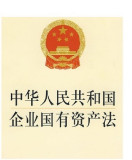
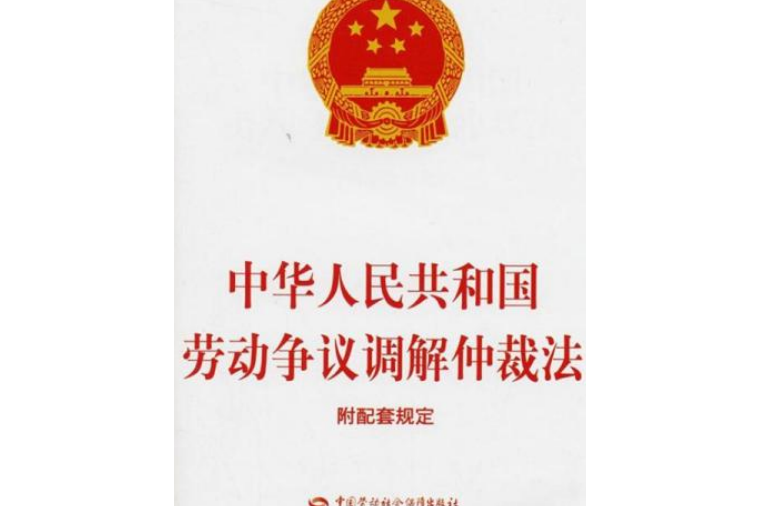
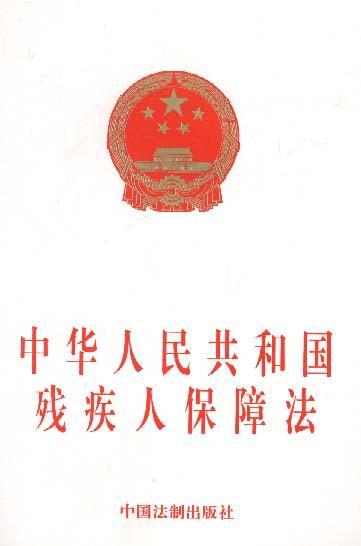
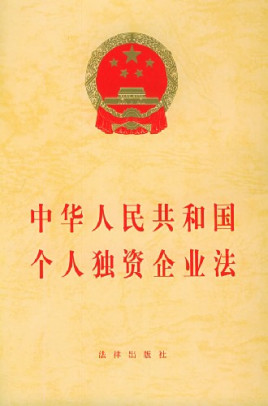
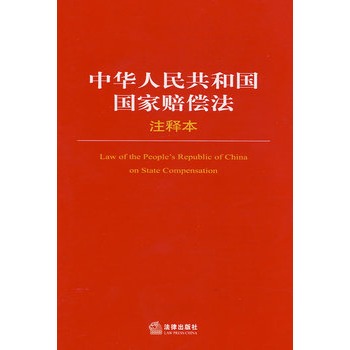
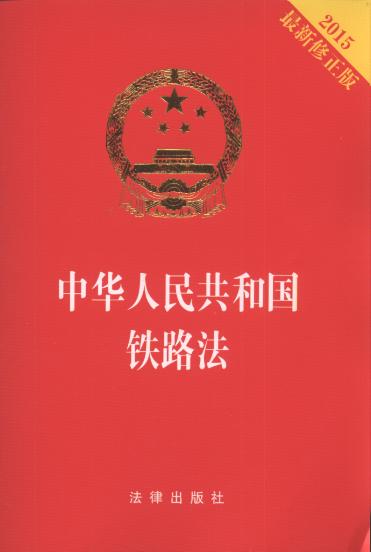
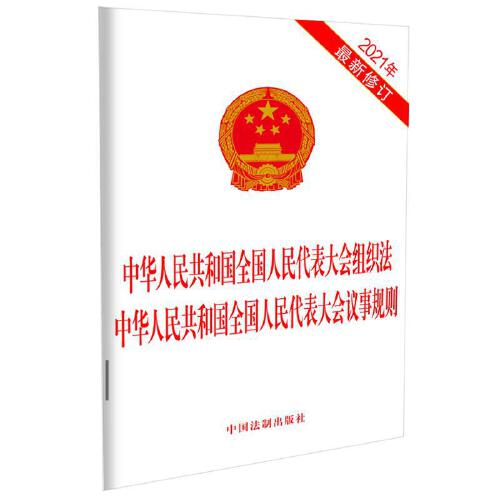


发表评论 取消回复